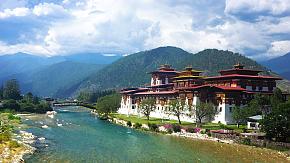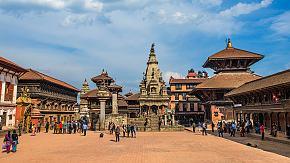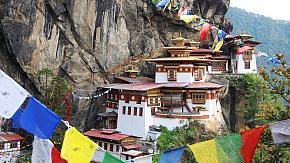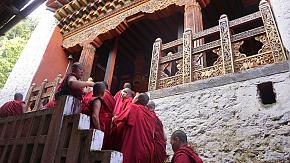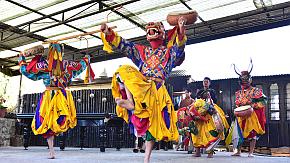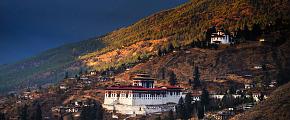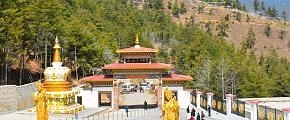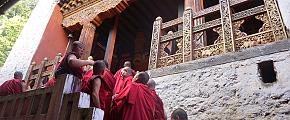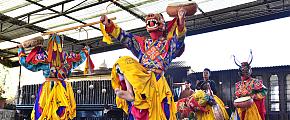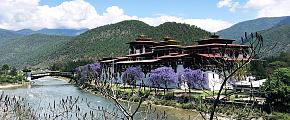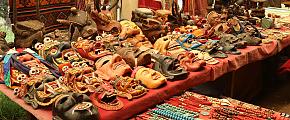Travel Tips and Suggestions for Visiting Bhutan
Bhutan, a small Himalayan kingdom often called the happiest country in the world, blends ancient Buddhist traditions with gentle modern progress. With its snow-capped peaks, lush valleys, and deeply spiritual atmosphere, Bhutan offers travelers experiences ranging from hiking to hidden monasteries to joining colorful local festivals. To make the most of your Bhutan journey, here are some essential travel tips for exploring this mystical land.
1. Check Visa and Passport Requirements
To ensure a seamless entry into Bhutan, it is essential to comply with the entry requirements and possess all the necessary documents in order.
All visitors, except for Indian nationals who require a permit, must obtain a visa prior to their arrival. However, nationals of Bangladesh and the Maldives, as well as nationals of Switzerland and Thailand holding diplomatic or government-official passports, are eligible for a visa on arrival at the port of entry.
Applying for a visa or permit can be done through the official website or with the assistance of tourism service providers. The required documents include a digital copy of the passport, which must be valid for at least six months from the intended departure date, a recent digital passport-appropriate photograph, and valid travel insurance covering the entire duration of the trip.
The visa fee is US$40 per person and is non-refundable. Processing time for a meticulously submitted visa application may take up to five working days. The granted visa entitles visitors to sojourn in Bhutan solely for the duration corresponding to the Sustainable Development Fee (SDF) payment.
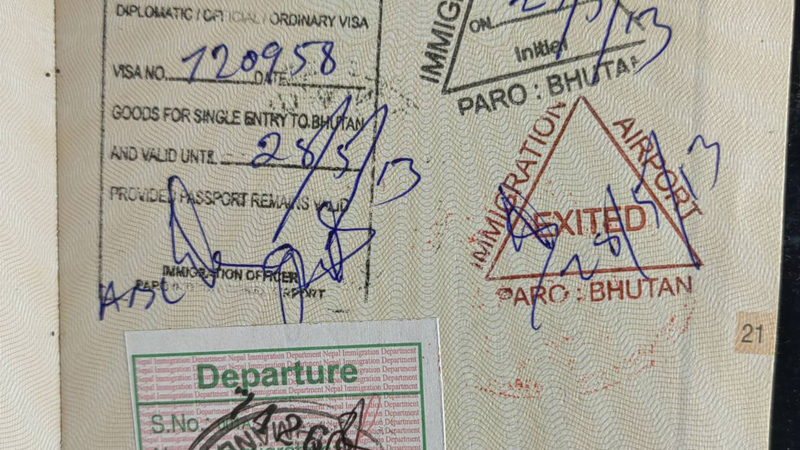 Bhutan Visa
Bhutan Visa
2. Pay Attention to the Fee for Sustainable Development
Starting July 1, 2020, Bhutan embarked on a significant change in its tourism policies by abolishing the minimum daily package rate (MDPR) requirement of $250 for tourists. However, visitors are still required to pay the revised Sustainable Development Fee (SDF), which has been increased from $65 to $200 per day, except for those from India (Indian guests visiting Bhutan are required to pay an SDF of 1,200 ngultrums per day or the equivalent amount in Indian rupees). The SDF plays a vital role as an environmental protection fund dedicated to preserving Bhutan's pristine nature and rich cultural heritage.
Children between the ages of 6 and 12 receive a 50% discount on the SDF, while children aged five or younger are exempt from paying this fee. In addition, for those planning an extended stay in Bhutan beyond seven days, an additional SDF fee will be applicable on a per-day basis.
3. Know About Local Currency
The currency in Bhutan is the Ngultrum (NU), which is equivalent to the Indian rupee. Both US dollars and Indian rupees are widely accepted, making it advisable to carry cash in either of these currencies or in Ngultrum.
Credit cards are accepted in major towns like Thimphu and Paro, although a 5% additional fee applies. Visa and Mastercard are accepted at ATMs and banks, but availability may be limited outside urban areas. Cash withdrawals from ATMs do not incur any fees, but there is a 1% fee for travelers' checks.
Tips:
- Prepare an appropriate amount of cash for an emergency or for a trip to a remote area, as ATMs may not be readily available near you.
- Foreign visitors can carry a maximum of USD 10,000. Any amount exceeding the limit should be declared upon arrival in Bhutan.
- Upon your arrival at Paro International Airport or in Thimphu, you will find convenient options to exchange your local currency for Bhutanese ngultrum. Banks, larger hotels, and authorized currency exchange businesses in Thimphu are available for currency exchange services.
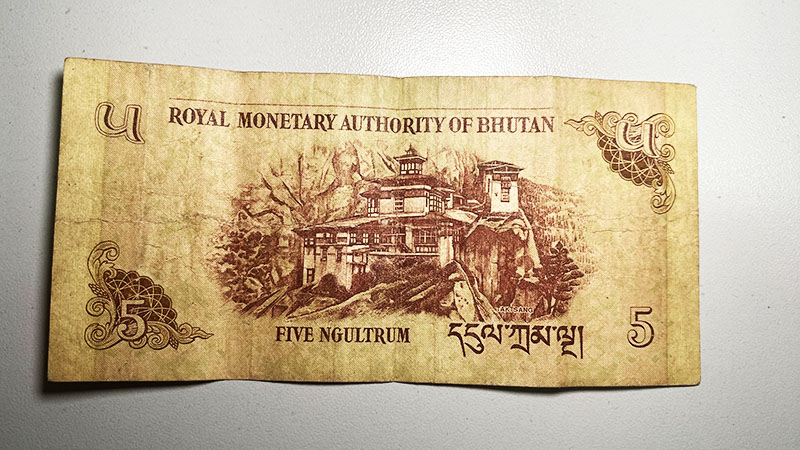 Bhutan Money
Bhutan Money
4. Follow Local Tipping Practices
In Bhutan, tipping is not mandatory, but you can tip service personnel such as tour guides, and drivers as a way to show appreciation and gratitude for their outstanding service.
Typically, a tip of 5% to 10% of the offer is appropriate. If you feel that the tour guide has performed exceptionally well, you can increase the tip accordingly.
For waiters, most hotel and restaurant bills already include a 10% service charge in your payment, so you do not need to give an additional tip. However, if the waiter provides exceptional service that really meets your needs, you may choose to give an extra tip as a way of showing appreciation.
In short, it is up to you to decide whether to tip or not, but if you decide to tip, be sure to pay attention to etiquette and appropriateness.
5. Travel Seasons
Nestled at the southern base of the Himalayas, Bhutan boasts a diverse topography with high peaks in the north and lowlands in the south, resulting in a significant difference in climate between the regions. Popular tourist destinations are mainly situated in low-elevation areas, ensuring enjoyable visits throughout the year. For trekking and hiking enthusiasts, spring and autumn offer optimal weather conditions.
Spring (March to May)
It is the perfect time for outdoor activities, with colorful blossoms creating a stunning sight. The beautiful scenery and warm climate attract many tourists to the best attractions, such as the iconic Tiger's Nest Monastery in Paro, the majestic Punakha Dzong in Punakha, the serene beauty of Haa Valley in western Bhutan, and so on. These scenic destinations offer a mesmerizing experience during the spring season.
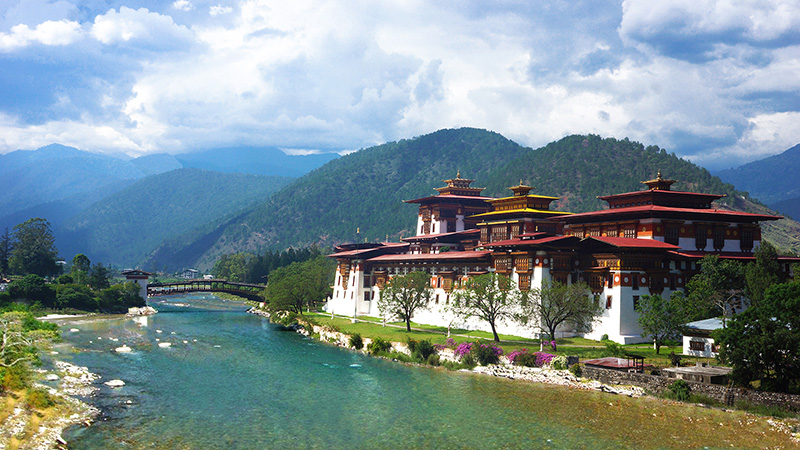 Punakha Dzong
Punakha Dzong
Summer (June to August)
This season marks the monsoon period in Bhutan. While trekking conditions are not ideal, sightseeing is still possible with a raincoat. The season is perfect for retreating to a spa, and the views are best in the mornings after nighttime rainstorms.
Autumn (September to November)
Autumn provides the best weather for hiking, festivals, and scenic views. In November, the annual Black-necked Crane Festival is held in Gangtok to celebrate the migration of these graceful birds to the Phobjikha Valley. Book accommodations and flights as early as possible during the peak season.
Winter (December to February)
It is the coldest season, but clear skies offer stunning views of the Himalayas. Visitor numbers drop due to low temperatures, and there are lower discounts offered by hotels and attractions.
6. Prioritize Safety During Your Trip
Scammers, beggars, and thieves are quite uncommon in Bhutan, making it a highly safe place to visit. However, there are a few things for you to keep in mind.
High Altitude Reaction
Remember to ascend gradually, allowing your body ample time to acclimatize to the changing oxygen levels. Take regular breaks during the trek and avoid overexertion, especially in the initial days at high altitudes. If you experience symptoms such as headaches or dizziness, rest immediately. Prior to embarking on a trek, consult a healthcare professional to discuss the potential use of medications for preventing or treating altitude sickness. Acetazolamide (Diamox) is a commonly prescribed medication that aids in acclimatization.
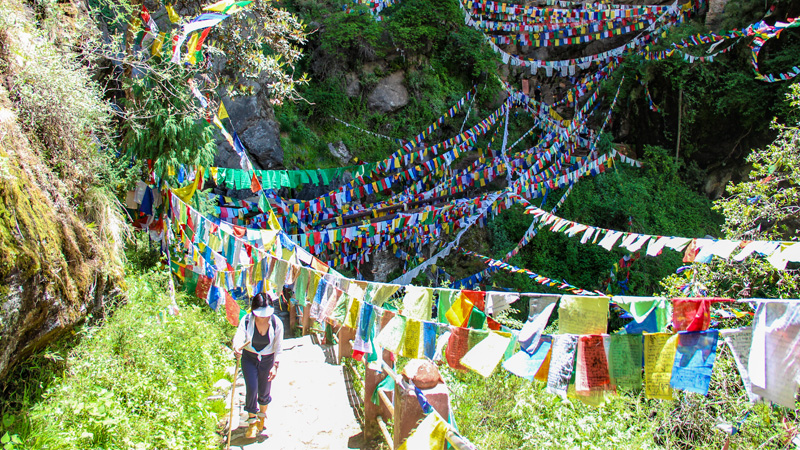 On the Way Hiking to the Tiger's Nest
On the Way Hiking to the Tiger's Nest
Stray Animals
While exploring rural areas, it is possible to come across stray animals. It is important to exercise caution as these animals are not domesticated. Typically, they keep their distance, but it is advisable to maintain your distance from them, especially if you have children. Refrain from feeding or attempting to pet these stray animals.
Motion Sickness
Traveling east of Thimphu can be challenging, as it involves hours of driving on uneven roads, often leading to motion sickness. To ensure a comfortable ride without the side effect of drowsiness, consider using non-drowsy medications like Bonine and Scopolamine. These effective remedies can help reduce symptoms such as nausea, vomiting, and dizziness, allowing you to fully appreciate the breathtaking scenery along the way.
7. Respect Local Etiquette
Respecting local etiquette and culture is crucial when visiting Bhutan, a country deeply rooted in tradition and cultural values.
Do not touch the heads of local people. If you want to help someone remove a piece of debris from his head, ask him for permission or just give him a kind reminder. In their conception, the head is the highest point of the human body and symbolizes the individual spirit and thought. Touching someone's head is considered a violation of their dignity.
Shoes should be removed when entering religious places and private residences. This is to avoid bringing dirt and dust from the outside into clean places and to show respect for the living or religious places.
Do not expose your shoulders and legs in public places. They think the body is sacred and private, so displaying it in public is inappropriate. Please ensure that you dress neatly and remove your hat before entering a religious place. Drinking alcohol is prohibited in religious places. Bhutanese believe in Buddhism, which advocates abstinence from drinking, as it is believed to harm physical and mental health and lead to negative behaviors and moral decay.
8. Indulge in Local Cuisine
With its unique taste and rich nutrition, Bhutanese cuisine attracts many tourists. You can taste the unique local flavors in restaurants, street markets, and special events.
Staple Food
Red rice is the preferred choice, known for its slightly sticky texture and sweet flavor. In high-altitude areas, people eat khule, a type of pancake made from wheat and barley, as well as puta, a type of noodle made from the same grains. These traditional staple foods are typically savored with a variety of seasonings and vegetables, adding to their rich and diverse flavors.
National Dish
Emadatse is a dish made by simmering chili peppers, usually Bhutanese red or green chilies, with locally produced cheese called "Datse". The dish can be prepared with or without additional ingredients such as onions, garlic, tomatoes, and vegetables. The combination of spicy chilies and creamy cheese creates a unique and intense flavor.
Special Snack
Momos, a steamed dumpling with meat or cheese filling dipped in spicy sauce, is the top specialty snack. It is a high-protein, low-fat, low-calorie food, usually served as part of breakfast or afternoon tea.
Drinks
Suja, a popular tea in Bhutan, blends tea leaves, milk, salt, and butter or ghee. It boasts a rich milky aroma and a unique flavor. And for those who enjoy beverages, a traditional beer called Chang and a wine known as Ara are available, brewed from grains like rice, wheat, or corn. These alcoholic drinks possess a strong and distinctive taste, obtainable in some shops and bars. However, please note that alcohol consumption is forbidden in Bhutan's temples and religious sites.
9. Bring Some Souvenirs
If you want to buy some special Bhutanese souvenirs as gifts or for your own collection, there are some recommendations for you.
Textiles and fabrics are the most sought-after souvenirs among tourists in Bhutan. These locally produced items are of exquisite quality and are highly valued by visitors. Additionally, stamps and first-day covers are popular choices for those looking for unique keepsakes. For a truly personalized touch, you can even create your own stamps with your image imprinted at the store attached to the Thimphu Central Post Office. If you're deeply interested in Tibetan Buddhism, you can also find excellent Thangkas, a traditional scroll painting that was created on cotton or silk using mineral pigments and gold dust. For those looking to purchase Bhutan's national attire, there are numerous apparel boutiques on Thimphu Street and traditional tailor shops in Paro to satisfy your desire.
Tips:
It's crucial to keep shopping receipts when purchasing large or high-value items, as you may be required to present them for inspection when leaving Bhutanese customs. Antiques can't be traded.
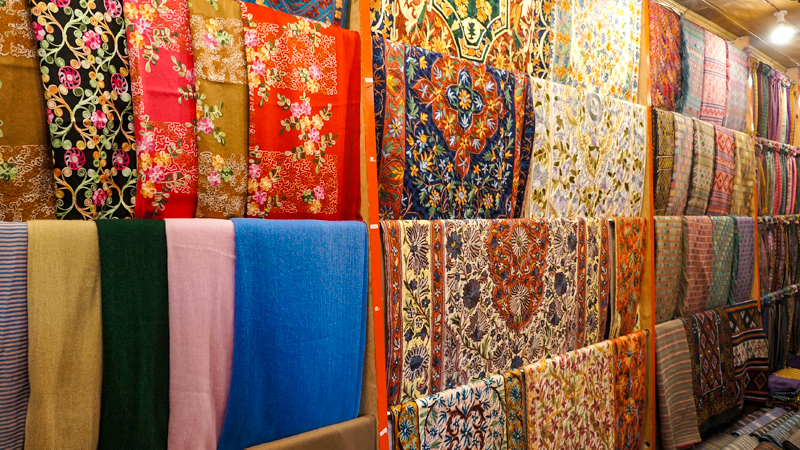 Bhutanese Silk
Bhutanese Silk
10. No Smoking in Public Areas
Bhutan, known for its strict anti-smoking regulations, has maintained a firm stance on promoting a healthy environment and preserving its pristine beauty. Smoking is strictly prohibited in public areas, such as streets, hotels, and restaurants. However, you can inquire with your accommodation about the availability of designated smoking areas.
If you are a smoker planning to bring tobacco products into Bhutan, you are allowed to bring a maximum of 200 cigarettes. However, it's important to note that exceeding this quantity will result in a substantial import duty of 200 percent. It is essential for visitors to respect and adhere to Bhutan's anti-smoking policy. Please familiarize yourself with the regulations and avoid carrying excessive tobacco products to ensure a smooth and compliant experience during your stay.
By following these travel tips and suggestions, you can ensure a smooth and memorable journey in this distinctive kingdom. If you are ready to embark on a journey in Bhutan, our team can give you personalized travel plans and prompt assistance with any concerns. Feel free to contact us and we look forward to your visit.
Related Posts You May Like
What Our Clients Say
Explore the latest verified reviews of Odynovo's travel services on Tripadvisor, Google, Trustpilot, Product Review and more trusted platforms.

